Mehmood Ul Hassan Khan
Most recently, Abu Dhabi department of economic development announced the results of the Abu Dhabi Economic Outlook Report, (2012-2016). It strongly indicated that Abu Dhabi’s macro-economy had entered a new phase of development, a paradigm shift towards further economic diversification which also supported the strategic objectives of Abu Dhabi Economic Vision 2030. His Highness Sheikh Khalifa bin Zayed Al Nahyan the President of the UAE visionary leadership played the most important role to achieve the desired of socio-economy and knowledge-based economy among the world’s most advanced and developed economies.
Salient Features
The report would be helpful to businessmen, investors, and policy makers to excel in it. It provides the basic information along with prospective growth in the different sectors of the macro-economy in the years to come i.e. 2012-2012. It was prepared and finalized after much consultation with a number of government departments and agencies involved in economic affairs in the emirate, and especially the Abu Dhabi Forecasting Committee, headed by ADDED. Members of the Committee include Statistics Centre, Abu Dhabi (SCAD), the Department of Finance, the General Secretariat of the Executive Council, the Abu Dhabi Council for Economic Development and the Abu Dhabi Urban Planning Council.
Heath of Macro-economy (2012-2016)
The said report showed that UAE economy outperformed other regional economies and maintained its elements of stability and sustainability during 2011-2012. The future prospects are also healthy and positive. The report emphasized that due to its constant sustainability the macro-economy of the UAE succeeded to manage the bad effects of ongoing regional political saga and global economic recession. Many regional and global countries strongly hit by the global financial crisis since 2009. It is indeed commendable that during these difficult times, the UAE economy has managed to achieve positive real growth.
Non-oil Trade GDP %
During the under-reviewed period, the non-oil trade had increased. Abu Dhabi started and completed many strategic investment projects. UAE has become hub of regional and international investments i.e. foreign direct investment and foreign portfolio investment. International investors are like migratory birds which are always in search of safe-heaven, selected UAE for their lavish investments due to its stability having zero political risk. The report told about different mega industrial projects in the different parts of the UAE which were designed to facilitate the achievement of the aims of Vision 2030.
Future Estimations
It forecasts non-oil real GDP growth may achieve 5.5 percent in 2012 which supported by the implementation of projects in the public and private sectors. It further elaborates that growth will continue, averaging 6.5 percent during the period 2013-2016, reflecting growing private sector investment and the completion of infrastructure serving free and other economic zones in the Abu Dhabi. On local front domestic household consumption in Abu Dhabi emirate is expected to grow by about 9.6 percent in real terms during 2012, and to average around 8.1 percent per annum in the 2013-2016 time frame, reflecting a buoyant economy and growth in per capita incomes.
Highlighting of Strategic Plan
The Abu Dhabi Economic Outlook Report, (2012-2016) highlighted its strategic plan for the development and promotion of exports, real estate development, tourism; transportation; energy; infrastructure; SMEs and the last but not the least, FDIs. It future economic estimation is prepared on the basis of ongoing or current economic policies/plans consistent with the goals and aspirations of Vision 2030. Moreover, the report is the reflection of emerging regional and global economic realities along with incorporating scientific and logical assumptions.
Expected Role and Contribution of Private Sector
The Abu Dhabi Economic Outlook Report, (2012-2016) shares how the private sector is likely to be strengthened. Such initiatives across the Emirate of Abu Dhabi will continue to stimulate domestic demand. It suggests Abu Dhabi may achieve real GDP growth of about 3.9 percent during 2012. It predicts that the macro-economy will continue to grow in subsequent years, achieving an average annual growth rate in the range of 5.7 percent during the period 2013-2016.
High Ratios of Capital Investment Growth
The report current projections indicate a high rate of capital investment growth in the current year, of about 11.3 percent in real terms, likely to be followed by growth of about 8.7 percent per annum on average during the period 2013-2016. It indicates continued investor confidence in Abu Dhabi, including the ability of the emirate to overcome emerging economic challenges. It shows common people confidence and businessmen trust in the policies of the government. It also pinpoints the integrated efforts of the government to create a more efficient business friendly environment.
Promising Human Development Resources
The UAE is a globally recognized leader in the field of human development, taking first place in the Human Development Report in 2011 amongst Arab states for the second consecutive year, and was placed within the top 30 globally. The said report suggests the government will continue to allocate funds for the social development not confined to education, health, infrastructure and other projects contributing to the welfare of citizens and residents of the emirate.
Knowledge-Based Economy
The report projects the diversified but integrated efforts of the Abu Dhabi’s government to promote the further development of a knowledge-based economy, and the importance of achieving economic diversification through the promotion of private investment in manufacturing industry. In this connection, new industrial cities will be established in Ruwais and Madinat Zayed. It would grow the chemicals and petrochemical sectors, oil and gas services, and the manufacture of cement and building materials along with oil and gas services, food-related industries, and logistics during 2012-2016. It upholds the government’s keenness to achieve balanced regional development in all the far-flung areas of the country.
Future Forecasts of Different Sectors
The said report forecasts an increasing contribution to GDP from the manufacturing sector. The focus on non-oil export growth and technological innovation has been paying off, and the outlook under these headings looks quite promising. It is hoped that non-oil merchandise exports will continue to grow healthily, contributing to the success of new economic zones operational from 2012 onwards. It refers to the initiative shown by the government in its approval of construction projects, including new industrial zones, i.e. Auto City. It continues to support the activities of the Khalifa Fund for Enterprise Development, which is concerned with identifying and assisting promising SME start-ups of varying sizes proposed by citizens. According to the report the real GDP growth in the manufacturing sector may achieve 5.2 percent during 2012, and acceleration to an average of about 7.1 percent per annum during the period 2013-2016.
Construction Sector
During 2005-2010 the construction sector was remained one of the major contributors to economic growth in the Emirate of Abu Dhabi. It achieved a 20.4 percent per annum on average during that time. According to the report construction is expected to continue its important supporting role in economic development in the Emirate during the current year, and is estimated to grow by 5.5 percent in real terms. It estimates growth of about 6.2 percent in the sector during the forecast period..
Tourism Sector
Tourism sector was achieved highest growth in 2011, and good growth is expected in the future, forecast to be 7.5 percent in real terms during the period 2012-2016. It emphasized the importance of this sector in the promotion of economic growth and as a contributor to economic diversification in the emirate, and as such it is considered to be one of the key enablers of Abu Dhabi Vision 2030.
Service and Health Care Sector
The service sector and the health care sector would be important generator of economic growth in Abu Dhabi, and has a special place in Vision 2030. Fourteen new health projects have already been designed to improve the level of provision across the emirate. It report gives special priority to education sector. The education sector is a key element in driving greater human development, and is consistent with the transition towards a knowledge-based economy. Social services, including health care and education, are expected to grow at an average rate of 7.1 percent in the forecast period. The report is first giant step towards expanding its economic database, information sharing, to promote transparency and growth in the emirate.
Conclusion
Abu Dhabi Economic Outlook Report, (2012-2016) reflects the government’s efforts to make the country business and investment friendly hub. It provides complete data-base about the different important sectors of the economy. It is way forward for the policy makers, businessmen and of course investors. It shows that UAE economy is stable and sustainable. Its social sector is robust. It provides basic information about human resources, labour markets, employment generation and the last but not the least, further economic diversification drive of the government.
Note: The series of articles are being written to celebrate the upcoming 41th National Day of United Arab Emirates.
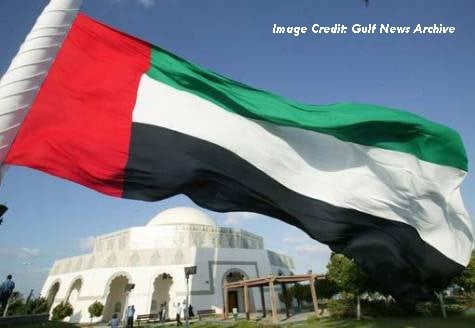
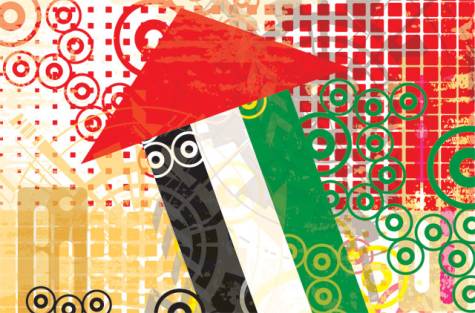
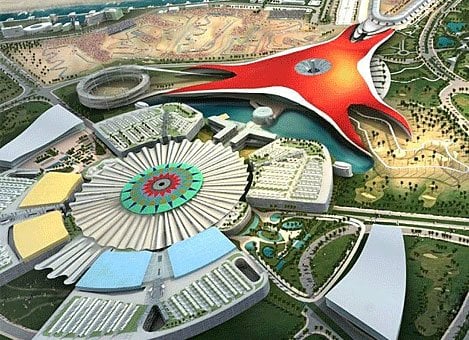
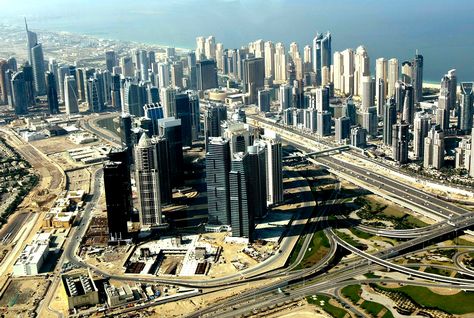

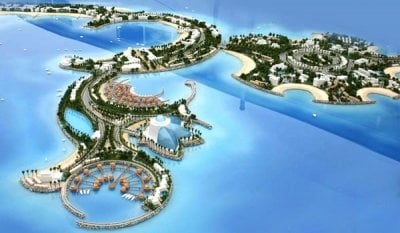

I got this web site from my buddy who shared with me concerning this
site and at the moment this time I am visiting this site and reading very informative content
here.
Dear Friend,
Thanks for your comments. My email is: mehmoodulhassankhan@yahoo.com my cell no is:+923009487177 please. MEHMOOD
I wanted to thank you a lot more for your amazing website you have developed here. It really is full of useful tips for those who are seriously interested in this specific subject, especially this very post.